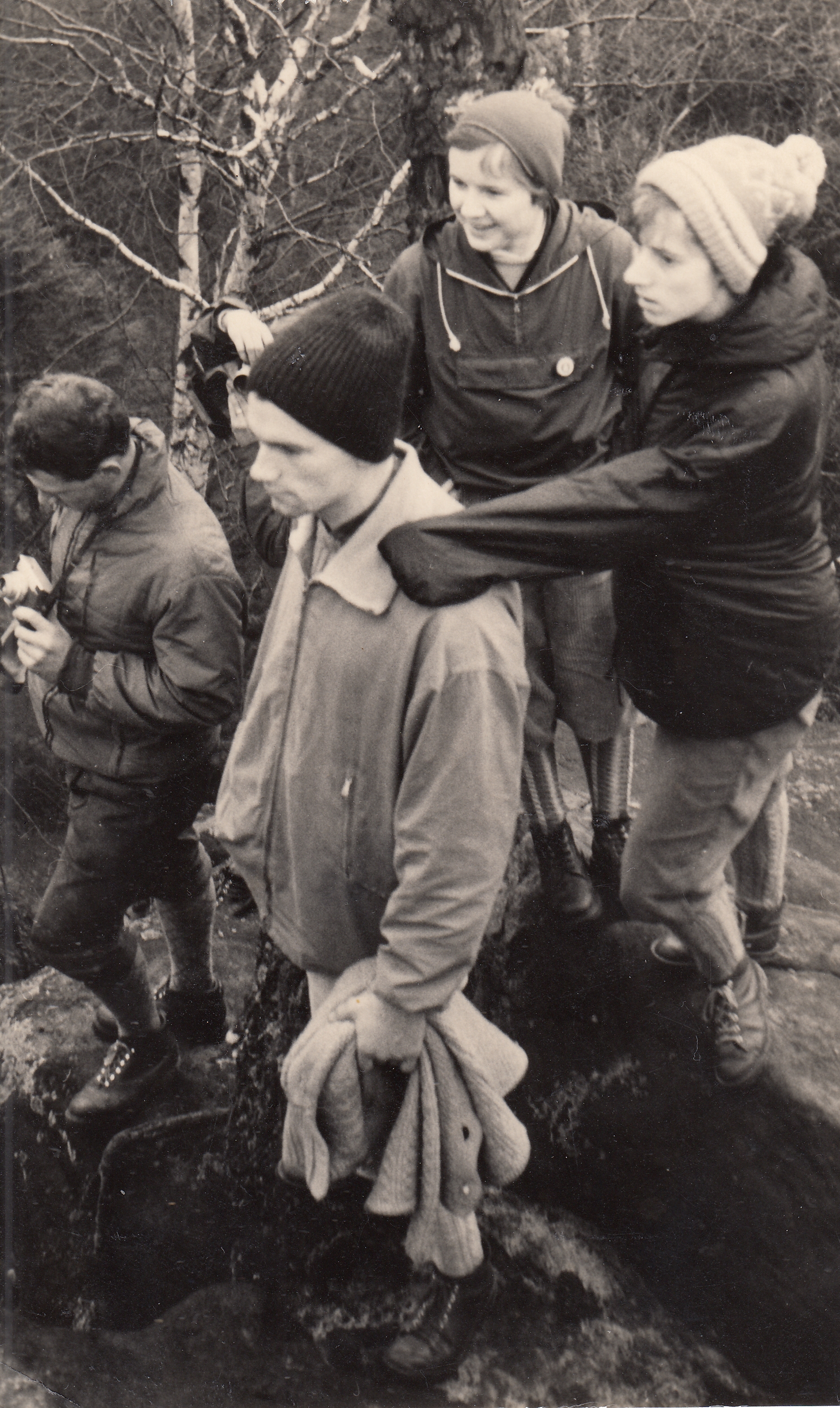The rock on the Czech side - can you imagine how that excites an East German mountaineer? But there was a border in between and a fence...

Stáhnout obrázek
Klaus Zimmermann was born in 1941 in Zittau, Germany. In the last months of the war he experienced the bombing of the town, in May 1945 his father was arrested as a member of the NSDAP and taken to the prison in Bautzen, he died in 1947 after being transported to the USSR. Klaus grew up in post-war poverty in a city overcrowded with exiles and refugees from Czechoslovakia, Poland and other countries. In his childhood, the GDR was separated from the Czechoslovakia by an impenetrable barbed-wire border, which was intended, among other things, to prevent Czechoslovak citizens from escaping to the West via Berlin. Klaus studied pedagogy in Dresden, but in his spare time he climbed mountains and did not hesitate to cross the border illegally, which was then a criminal offence. He recalls a number of episodes of not-quite-legal border traffic from 1963 to 1989, as well as the invasion of Czechoslovakia by „brotherly troops“, which was a bitter experience for him. At the end of the communist era, Klaus Zimmermann became involved in opposition activities, was interrogated and once arrested. For a short time he was a member of the opposition New Forum, he co-renewed the activities of the Social Democrats in the GDR, and in 1990 he became deputy mayor of Zittau. At that time he made numerous contacts with Czech mountaineers, some of whom were doing local politics for the Czech Civic Forum at the time.
